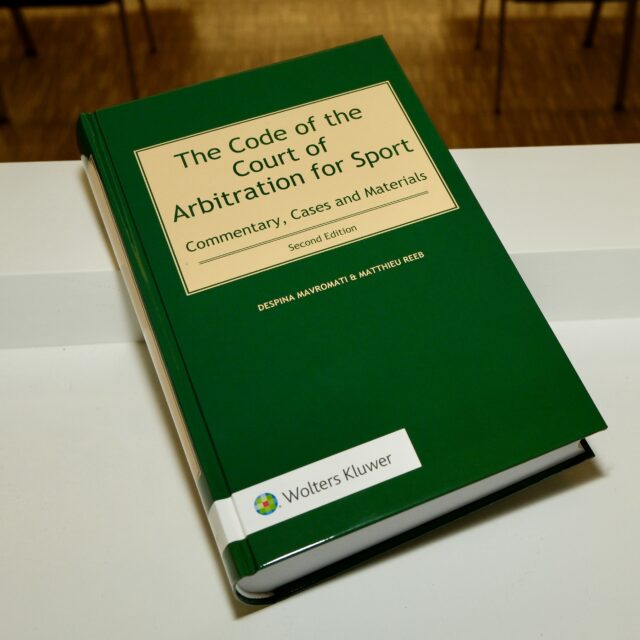4A_540/2018, Judgment of May 7, 2019, Jérôme Valcke v. FIFA
Conditions of opting out of the award review mechanism under the Swiss Code of Civil Procedure
This Federal Tribunal judgment is very interesting since it deals, among other issues, with the distinction between domestic and international arbitration and the exact conditions for opting out of the award-review mechanism under the Swiss Code of Civil Procedure (CPC) for the more restrictive appeal conditions foreseen in Article 190 (2) of the Swiss Private International Law Act (PILA).
The Facts
The case related to a disciplinary sanction issued by FIFA upon the former FIFA Secretary General Jérôme Valcke (the Appellant) over various breaches of the FIFA Code of Ethics.
More specifically, the Appellant was implicated in a scheme related to the resale of World Cup tickets and acted against FIFA’s best interests by taking private flights for sightseeing trips with his family at the organization’s expense. The Appellant was also involved in the sale of television rights for below market value and was accused of deliberately trying to obstruct the proceedings against him by attempting to delete files and folders relevant to the investigation.
The Adjudicatory Chamber of FIFA issued its final award on February 10, 2016, prohibiting the Appellant from engaging in any activity related to football for 12 years and imposing a fine of CHF 100’000 for violations of Articles 13, 15, 19, 20 and 41 of the FIFA Code of Ethics (CEF). The FIFA Appeal Committee subsequently reduced the duration of suspension to 10 years, sanction that was subsequently confirmed by the CAS.
The CAS Award and the Appeal to the Swiss Federal Tribunal
Opting out of the domestic arbitration regulation (Art. 393 CPC) from unequivocally signing the order of procedure providing for the 12th chapter of PILA
The Appellant filed a motion to set aside the CAS award before the Swiss Federal Tribunal. He considered the matter to be one of domestic arbitration subject to the provisions of the Swiss CPC (as opposed to the 12th chapter of PILA) and invoked arbitrariness for disregarding the mandatory provisions of Swiss labor law. Arbitrariness is a ground of appeal applicable only in domestic arbitrations regulated under the Swiss CPC.
The Swiss Federal Tribunal repeated some of its considerations on the distinction between international and domestic arbitration from the Platini judgment (4A_260/2016, at 1.1). It reiterated the practical consequences that this distinction entails, particularly with respect to the more thorough review under the CPC, since “arbitrariness” is only a ground for appeal in domestic arbitrations and does not appear in the exhaustively enumerated grounds for appeal under Article 190 (2) PILA.
According to the CPC, however, the parties have the right to opt out of the CPC and agree for a (more limited) review of the arbitral award under the PILA: said agreement would constitute a “choice of law” under Article 176 (2) PILA) and even though the opting-out does not necessarily include questions of arbitrability, which continue to be regulated under Article 354 CPC (ATF 144 III 235 at 2.3.3).
In the present case, the CAS Court Office circulated the (more or less) standard order of procedure which provided for the application of the CAS Code and the provisions of “Chapter 12 of the Swiss Private International Law Statute”, “to the exclusion of any other procedural law”. Said order was unequivocally signed by the parties.
The Federal Tribunal considered the signing of the order of procedure as a valid “choice of law” and dismissed arguments that the mention of the 12th chapter of PILA was a “clerical error”, particularly since said order was signed by the Appellant’s counsel. The fact that such document was a “standard” document did therefore not exempt the parties from carefully reading the provisions which the tribunal suggests should govern the procedure (at 1.5).
The Federal Tribunal also found that, even though the form of opting out (in the order of procedure) did not correspond with other cases related to opting out brought before the Swiss Federal Tribunal, it still qualified as such (1.6.1.1). After comparing the conditions of the waiver of any appeal under Article 192 PILA to the opting out of the CPC, it found that the former has the effect of depriving the appellant of all grounds of appeal, while the latter simply replaces the grounds of appeal in Art. 393 CPC by the more restrictive ones of Article 190 PILA (1.6.1.2).
Violation of the right to be heard by not rendering a decision on the domestic or international character of the dispute
The Appellant invoked a violation of his right to be heard because the CAS Panel did not rule on the (international or domestic) character of the arbitral proceedings (and subsequently ruling on the legal remedies available against the award). Interestingly, the Federal Tribunal held that an arbitral tribunal is not required to indicate the legal remedies against the award (unlike a cantonal authority whose decision cannot be directly appealed to the Swiss Federal Tribunal). It reminded, however, that any similar decision on this issue by the CAS Panel would not have prevented the Swiss Federal Tribunal from reviewing the issue of whether the arbitration in question was domestic or international in nature.
Violation of procedural—and substantive—public policy
In his third ground, the Appellant invoked a violation of Article 6 (1) ECHR and Article 14 of the International Covenant on Civil and Political Rights (ICCPR), making the award incompatible with procedural public policy. More specifically, the Appellant held that the disciplinary sanction was imposed on him while criminal proceedings relating to the same facts were ongoing constituting thus a violation of his right to a fair trial.
Without entering into the issue of the scope of the principle nemo tenetur se ipsum accusare in a disciplinary procedure within a private law association while criminal proceedings are pending, the federal Tribunal simply found that the CAS Panel had not established the scope of these investigations, which constituted a finding that bound the Federal Tribunal and made such a grievance inadmissible (at 3.2).
Finally, the Appellant invoked a violation of substantive public policy due to the excessive nature of the sanction. The Federal Tribunal swiftly dismissed said argument (nothing excessive in view of a serious breach by the Appellant in his capacity as a senior officer of a sports association) and clearly distinguished such case from the case of the Brazilian football player Francelino da Silva Matuzalem, who was subject to an unlimited prohibition to practice his profession failing to pay an indemnity of more than 11 million euros at short notice (ATF 128 III 322).








